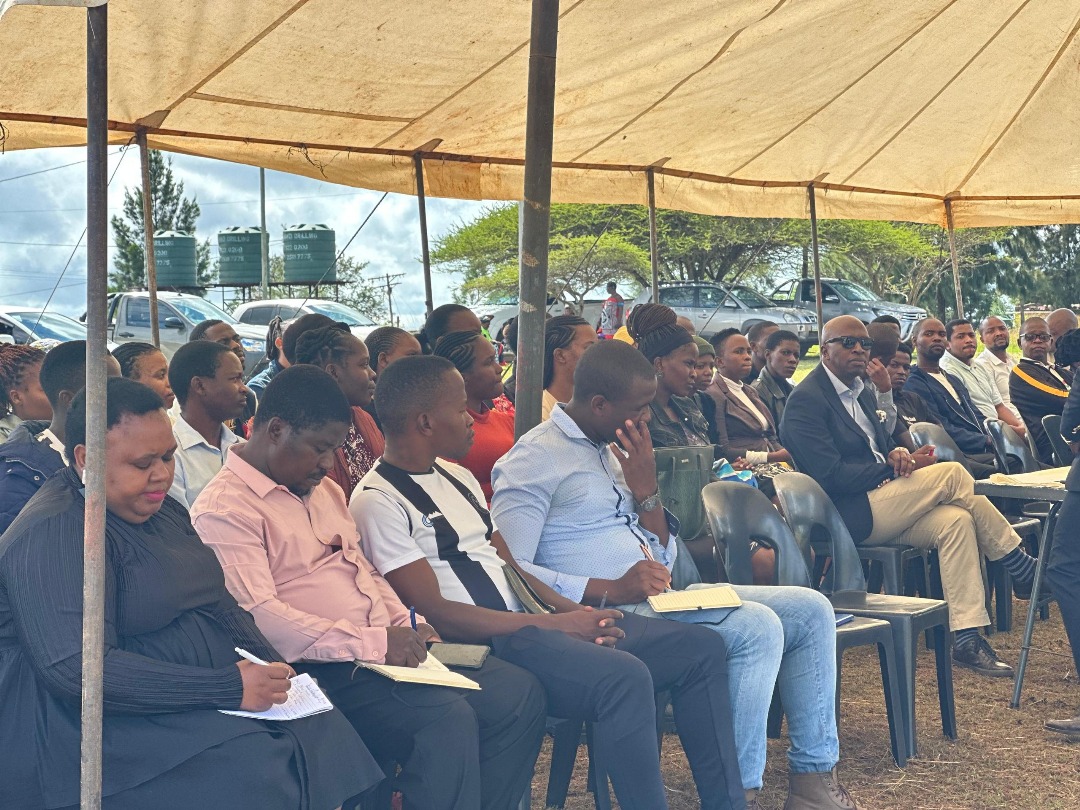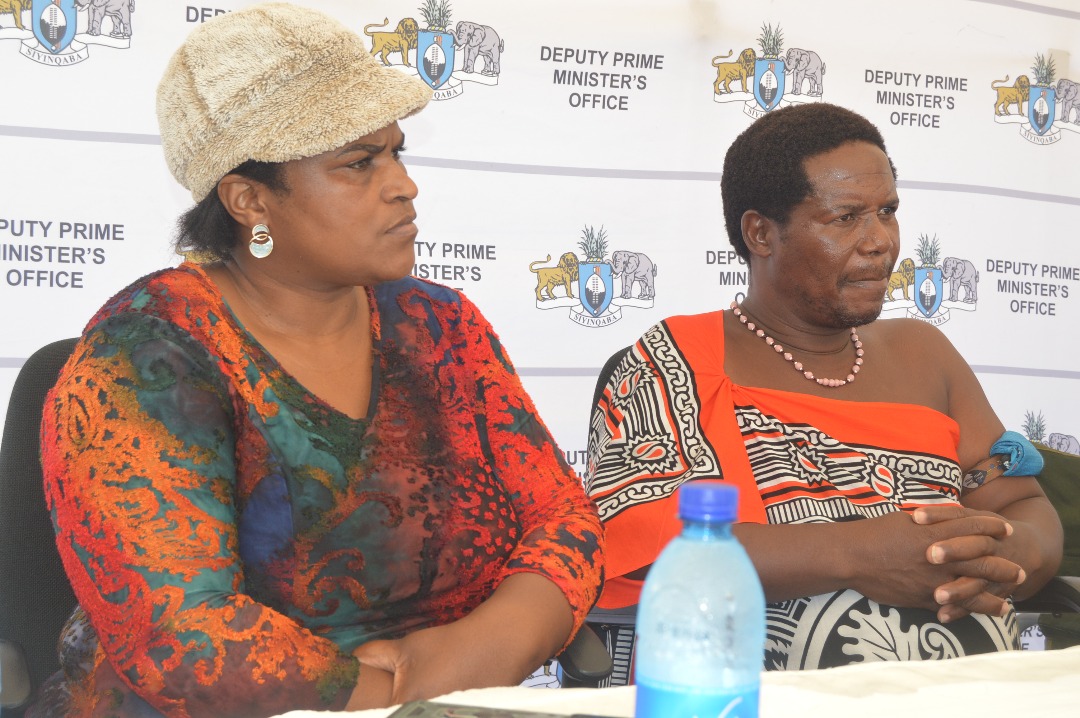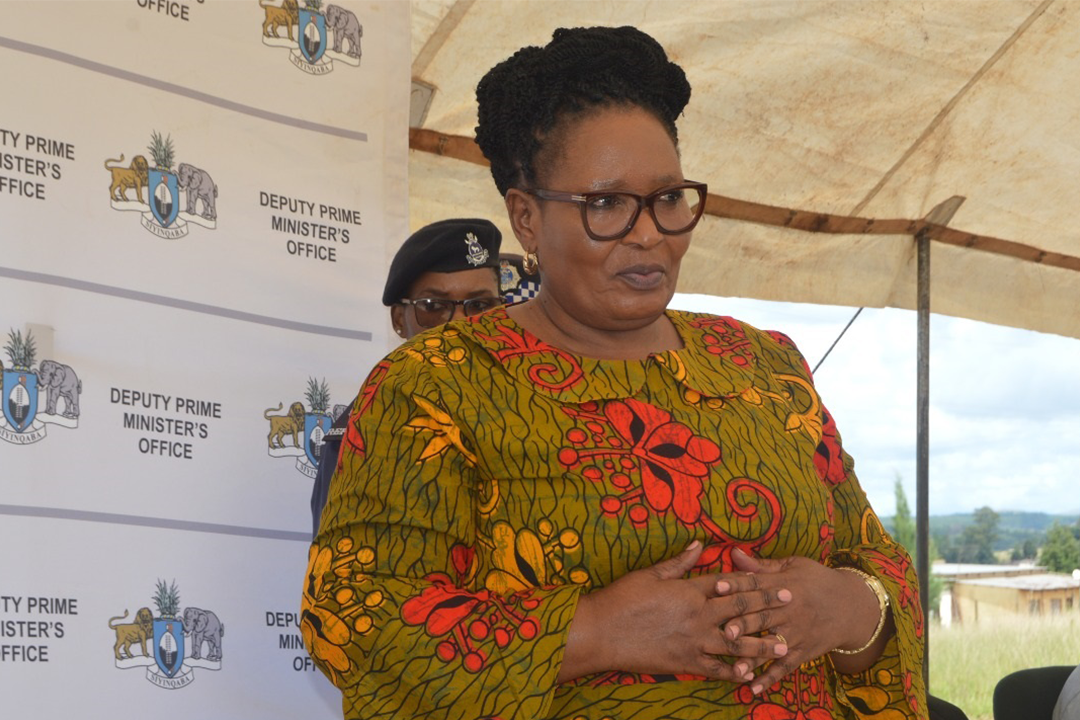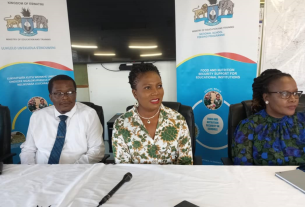BY MBONO MDLULI
MBABANE – Deputy Prime Minister (DPM) Thulisile Dladla has officially commissioned the training of enumerators, who bear the significant responsibility of collecting data across all the 15 Tinkhundla in the Shiselweni Region.
This initiative is aimed at developing the National Dynamic Social Registry, referred to in Siswati as “Imbeleko”.The DPM made this announcement on 3 March 2025, at Mbangweni, Nhlangano. In her speech, she articulated that the National Dynamic Social Registry – Imbeleko would play a crucial role in informing decision-making regarding programme design, coverage, and delivery.
Furthermore, it is intended to promote transparency and accountability, serving as a scientific tool to objectively identify households with specific characteristics, particularly those that are poor and vulnerable, who would benefit from targeted social sector programmes. Dladla emphasised that this initiative would enhance efficiency, which is currently lacking, while also enabling the Government to monitor national social protection systems more effectively.

It aims to improve the identification of programme beneficiaries, thereby reducing inclusion and exclusion errors. The Social Registry is expected to significantly address issues of double dipping, ensuring equity in social assistance. The DPM stated that the Deputy Prime Minister’s Office (DPMO) is tasked with providing and coordinating people-centred social protection services, ensuring the safeguarding and care of extremely poor and vulnerable groups in the country, including children, the elderly, and persons with disabilities.
“The Office strives to build resilient communities through social safety nets and relevant social protection mechanisms to mitigate the effects of economic and environmental shocks. These programmes encompass elderly grants, disability grants, Elderly Funeral Cover, the Orphaned and Vulnerable Children Education Grant, Public Assistance, and emergency food relief,” Dladla remarked.
According to the DPM, the Office has faced challenges in executing its mandate for social assistance efficiently and effectively, as data concerning individuals and households is fragmented across various sources for social protection programmes. The establishment of the National Dynamic Social Registry Information Management System (Social Registry) is anticipated to enhance the efficiency, effectiveness, and equity of social protection programmes by improving targeting, eliminating undeserving beneficiaries, and enhancing coordination and data management for better service delivery and improved outcomes for vulnerable populations.

The Social Registry will serve as a repository of socio-economic information for all households across the country, based on selected variables that are strong predictors of household wellbeing, as analysed by the latest available Eswatini Income and Expenditure Survey and the Vulnerability Assessment Report. It is essential for the Social Registry to integrate with other Management Information Systems to facilitate the seamless exchange of information among the various existing systems hosted by RSTP.
The Social Registry will not only benefit the Government but also development and implementing partners involved in social assistance programmes. Instead of expending resources to collect data from each community, they will be able to access the data centre for their target population and only venture into the field to validate the data, thereby achieving substantial savings in data collection, analysis, and validation.
Partnering with RSTP is critical for the Office, as RSTP is the custodian of all Government data and hosts the national data centre. Additionally, RSTP possesses the necessary IT infrastructure and expertise to manage data of this magnitude.
Timelines for Data Collection:
- Training of Enumerators:3-7 March 2025
- Pre-Test of the Survey Tool:10-14 March 2025
- Data Collection:17 March to 11 April 2025







